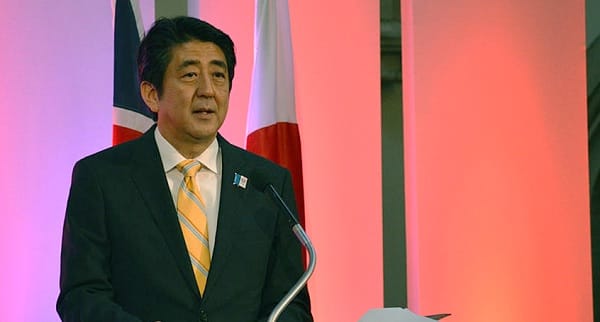Japanese Prime Minister Shinzo Abe’s week-long tour of Europe was a sales pitch for Japan, intended to boost his country’s economy and strengthen its security ties.
The Japan-EU FTA and Implications for the TPP
Last year, Japan and the European Union began talks on a Japan-EU free trade agreement (FTA). During his visits, Mr. Abe met with key European leaders, which could be an important diplomatic boost for negotiations – the leaders Mr. Abe spoke with all reiterated their commitment towards an eventual deal.
Japan is also currently involved in the Trans-Pacific Partnership (TPP) trade talks, a twelve-country deal that includes the United States and Singapore. The conclusion of the TPP has been repeatedly delayed, in part due to opposition from Japan’s agricultural sector. Several countries within the EU are strong agricultural exporters, so the same issue could hinder a Japan-EU FTA. However, if Japan does successfully negotiate a Japan-EU deal, it could also serve as a useful precedent for the TPP.
Other Outcomes
During his visit, Mr. Abe also secured important agreements with European leaders on other key issues. For instance, Japan and France signed a deal to jointly develop civilian nuclear energy technology, and will begin talks on similar collaboration for defence technology. In Spain, Mr. Abe and his Spanish counterpart Mariano Rajoy agreed to cooperate in commercial affairs. Spain will help Japanese companies make inroads into the Latin American market, tapping on Spain’s close ties with Latin American countries.
Mr. Abe’s Foreign Strategy
Since taking office in December 2012, Mr. Abe has spent nearly a fifth of his time, nearly three months in total, on visits around the world. He has travelled much more than his recent predecessors as Japanese Prime Minister, which underscores his commitment to strengthening Japan’s foreign relations.
Thus far, Mr. Abe has travelled to Africa, the Middle East, Latin America, Europe and Asia – including every country in the Association of Southeast Asian Nations (ASEAN). However, there are still two notable gaps in Mr. Abe’s itinerary: China and South Korea. Relations with China and South Korea remain relatively frosty, marred by recent tension over territorial disputes.
While Mr. Abe has been successful in strengthening Japanese ties across the world, improving relations with Japan’s closest neighbours remains Mr. Abe’s greatest foreign policy challenge.
Source:
Abe steps up his salesmanship on foreign odyssey [Financial Times, 1 May 2014]
Photo Credit: Chatham House




